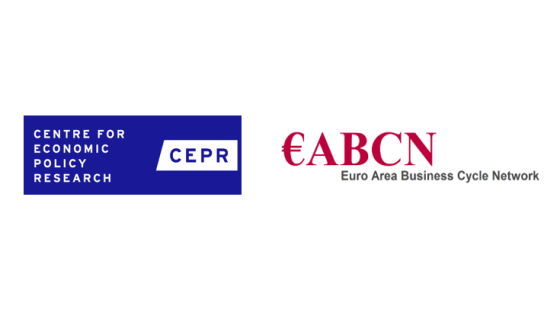General Description
We are pleased to announce details of the latest EABCN Training School, a course over 2 weeks entitled "Beliefs and Social Networks". Professor Johannes Stroebel (NYU Stern School of Business) will teach the course. It is primarily aimed at participants in the Euro Area Business Cycle Network, but applications will also be considered from doctoral students, post-doctoral researchers, and economists working in central banks and government institutions outside of the network, as well as commercial organisations (fees are applicable for non-network non-academic organisations).
Course outline
This course will introduce participants to a recent literature that studies the interaction between household and investor beliefs, social interactions, financial markets, and the broader macroeconomy. The first lecture explores the role of investor beliefs in affecting financial markets, reviewing a number of recent research papers that combine survey evidence of investor beliefs with (largely behavioural) models of asset pricing. The second class then discusses the determinants of investor beliefs. The third class explores how social interactions affect investor beliefs and behaviors in the housing market. And the fourth class explores how social networks and social interactions affect a range of other economic outcomes, such as mutual fund investments and international trade patterns. In the process, we will introduce a new data set, the Social Connectedness Index, that measures the extent to which indiviudals across various regions are connected on Facebook. Participants are then encouraged to work on a group project with this publicly available data set to explore how social networks affect a range of economic outcomes. Possible projects include using the Social Connectedness Index to explore the propagation of economic shocks across geographies, or to forecast the spread of Covid-19.
The course is divided into four lecture sessions taught over four days, followed by a practice/presentation session the following week.
14-17 June 2021:
Session 1: Investor Beliefs and Financial Markets
Session 2: The Determinants of Household and Investor Beliefs
Session 3: Social Interactions and Beliefs in the Housing Market
Session 4: Social Networks and Economic Outcomes
25 June 2021:
Group presentations: Data work with Social Connectedness Index
Administrative Information:
The course will take place online. More information about logistics will be circulated closer to the date.
Candidates who have a CEPR profile should apply by submitting their CV online at https://portal.cepr.org/EABCN-TS-June-2021 by 6pm (CET), Friday 14 May 2021. If you do not currently have a CEPR profile, please create a new one here and then click on the registration link.
We ask that you send a current version of your CV. PhD students should also specify in which way the school will be useful for their current research (max 300 words).
Participants from non-academic institutions where the employer is not a member of the EABCN network are charged a reduced course fee of EUR 1,000. About the Instructor:
Johannes Stroebel is the David S. Loeb Professor of Finance and the Boxer Faculty Fellow at the New York University Stern School of Business, as well as a Research Associate at the National Bureau of Economic Research. He joined NYU in 2013 from the University of Chicago Booth School of Business, where he was the Neubauer Family Assistant Professor of Economics. Professor Stroebel conducts research in finance, macroeconomics, and real estate economics. He has won numerous awards, including the AQR Asset Management Institute Young Researcher Prize and the Brattle Award for the best paper published in the Journal of Finance. He has also won an Alfred P. Sloan Research Fellowship in Economics. He sits on the editorial boards of the Journal of Finance, the Review of Economic Studies, and the Journal of Political Economy. Professor Stroebel read Philosophy, Politics, and Economics at Merton College, Oxford, where he won the Hicks and Webb Medley Prize for the best performance in Economics. He earned a Ph.D. in Economics at Stanford University, where he held the Bradley and Kohlhagen Fellowships at the Stanford Institute for Economic Policy Research.



